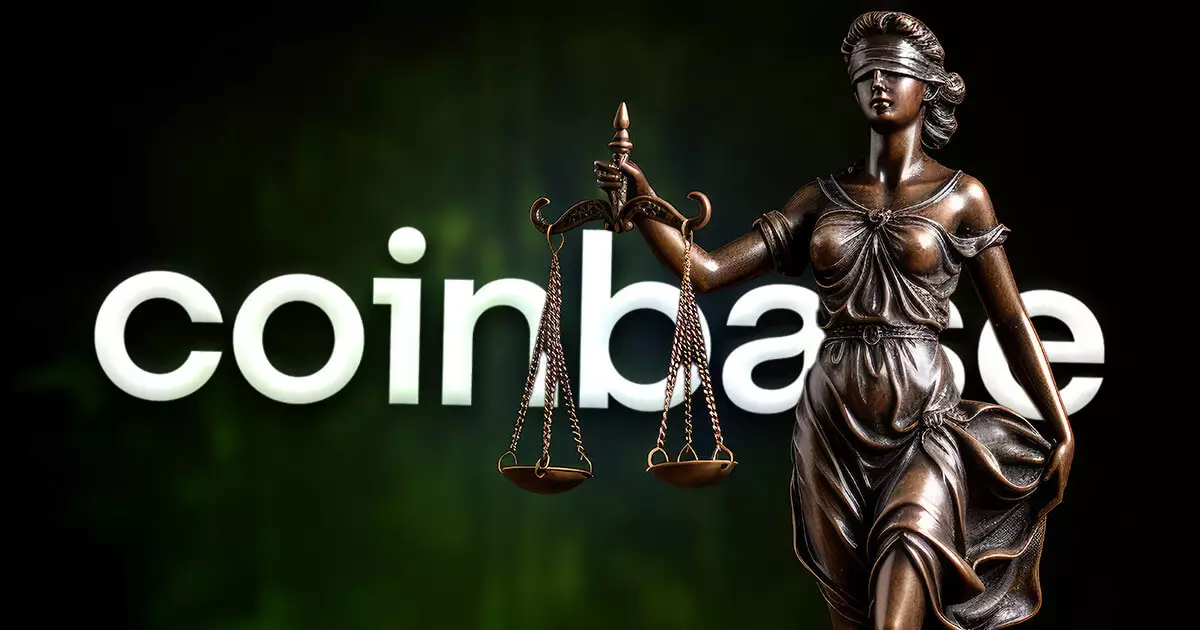In a significant legal move that has captured the attention of the cryptocurrency community, BiT Global has initiated a lawsuit against Coinbase, one of the foremost cryptocurrency exchanges in the United States. As detailed in a court filing dated December 13, BiT Global has raised serious allegations against Coinbase regarding its recent decision to remove wrapped Bitcoin (WBTC) from its platform. At the core of the lawsuit is the claim that Coinbase’s actions exhibit an anti-competitive strategy aimed at promoting its proprietary product, Coinbase Wrapped Bitcoin (cbBTC).
This lawsuit delves into the intricate workings of digital asset trading and the thin line between competition and monopolistic behavior. With Coinbase’s dominant market presence, BiT Global accuses the exchange of abusing its power to eliminate competition, thereby violating antitrust regulations. The allegations suggest that Coinbase’s strategic moves are not merely business decisions but calculated steps to solidify its control over the wrapped Bitcoin sector, which could have far-reaching implications for the decentralized finance (DeFi) landscape.
Antitrust law aims to prevent monopolistic practices and promote fair competition. BiT Global asserts that Coinbase’s conduct exemplifies an infringement of these principles. The crypto custodian argues that Coinbase’s replacement of WBTC with cbBTC is not about adhering to listing standards but is rather a move orchestrated to capture market share that WBTC encompasses.
The lawsuit casts doubts on Coinbase’s assertions regarding the removal of WBTC based on quality standards. Notably, BiT Global references the exchange’s allowance of meme coins like PEPE and MOG, arguing that this inclusion showcases the arbitrary nature of the delisting process. The implication here is profound: if exchanges prioritize personal gains over established quality standards, the very essence of what constitutes a competitive market is undermined.
Moreover, the filing suggests that Coinbase’s incentive to eliminate WBTC has financial motivations, hinting that as cbBTC gains traction, Coinbase stands to benefit substantially from increased transaction fees. This raises questions about ethical practices within a rapidly evolving market where financial gain appears to supersede principles of fair competition.
The aftermath of BiT Global’s entry into the wrapped Bitcoin space highlights the volatility and challenges endemic to cryptocurrency. As the infrastructure surrounding wrapped Bitcoin matures, the delisting of WBTC by Coinbase signifies a turbulent period for the asset. Following pivotal changes, including BitGo’s decision to decentralize custody of WBTC, BiT Global emerged as an essential custodian for the wrapped asset. Such transitions have not only affected liquidity but also instigated apprehensions among DeFi platforms.
Despite these challenges, WBTC continues to retain a considerable market cap of approximately $13.7 billion, ranking it among the top 20 cryptocurrencies. However, its token supply has notably diminished by over 20,000 BTC, leading to questions regarding its sustainability in the long term. This dwindling supply juxtaposed against Coinbase’s burgeoning cbBTC, which reportedly has a market cap of around $2 billion, speaks volumes about the competitive dynamics at play.
A Call for Restoration and Decentralization
BiT Global’s lawsuit transcends a mere corporate dispute; it serves as a clarion call for the preservation of decentralized innovation within the crypto sector. As competition becomes increasingly concentrated, the ramifications of such control could stifle innovation and prevent new entrants from making meaningful contributions to the industry.
In light of these developments, BiT Global aims not only to restore WBTC’s standing in the marketplace but also to champion a more decentralized framework that fosters competition and innovation. By taking this legal route, BiT Global emphasizes the necessity of equitable practices in an arena where the stakes are continually escalating.
As this lawsuit unfolds, it is imperative to reflect on the broader implications for the cryptocurrency ecosystem. With regulators closely scrutinizing the behaviors of major players in the space, the outcome of this case may well set precedents that could influence the future landscape of digital asset trading and governance. The evolving narrative of BiT Global vs. Coinbase encapsulates the ongoing struggle between innovation and control, making it a pivotal chapter in the history of cryptocurrency.
















Leave a Reply